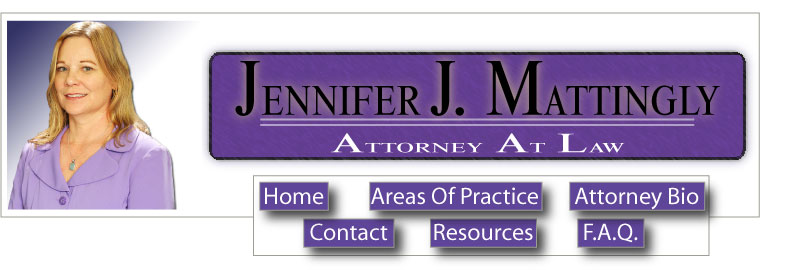 |
||||||||||||||||||||||
| Business Formation | ||||||||||||||||||||||
|
Wills/Estate Planning
|
||||||||||||||||||||||
|
Areas of Practice
|
||||||||||||||||||||||
| Probate | ||||||||||||||||||||||
|
Wills/Estate Planning Wills and Probate Why should I hire a lawyer to write my will when I can find forms on the internet? While many forms are available on the internet, every state has specific laws regarding the drafting and execution of wills and you may not find the exact language that you need for a valid Texas will. The most commonly misdrafted aspect of the “homemade” Texas will is the self-proving affidavit, which has to be very exact to meet statutory requirements. Without a proper self-proving affidavit, your estate will have to produce witnesses in court in order to probate your will, and this will create considerably more expense to your estate than if you had a properly drafted will in the first place. Why does the Probate Court require me to have a lawyer to probate my relative’s will? Every probate case which involves court testimony (this includes the normal probate of a properly written and executed will) has to be filed by a lawyer. The County Clerk’s office will not accept pro se probate cases. The reason for this is that the clerks who work at the courthouse cannot give legal advice, and people attempting to handle their own cases will inevitably ask for assistance. A probate case is normally unopposed, but the court has to treat every case as if it will be adversarial, just in case that happens. Why are there two different statutory powers of attorney? One is the Medical Power of Attorney and the other is the Statutory Durable Power of Attorney. The first is for medical purposes: for when you are unable to make your own medical decisions. The second is for a situation where you have a long-term disability and need someone to take care of your finances. The Durable Power of Attorney is especially important because without it, the spouse of a disabled person is unable to sell property belonging to both unless a formal guardianship is created. This is an expensive and cumbersome process which this document effectively prevents from happening. How can I prevent the Terri Shaivo situation from happening to me? Texas doesn’t have a statutory document called a “living will.” However, you can take care of any situation in which you cannot make your own medical decisions by having a Medical Power of Attorney, wherein you name who you want to make decisions for you (and, very importantly, you also name alternates in case your first or second choice is not available). You also need a Directive to Physicians, another statutory document in which you can specifically say whether you want to be kept alive indefinitely or not. WHAT HAPPENS IF YOU DON’T HAVE A WILL 1. SINGLE PERSON WITH NO CHILDREN THE DECEDENT’S PROPERTY IS INHERITED BY HIS/HER PARENTS (½ TO EACH). If one parent has predeceased the Decedent, that parent’s one-half share is inherited by the Decedent’s siblings, in equal shares. If neither parent survives the Decedent, the entire estate goes to the Decedent’s siblings. The share which would go to a deceased sibling is divided equally among that sibling’s children, or if there are none, then to the remaining siblings. If there are neither parents nor siblings (the Howard Hughes scenario) then the Decedent’s estate is divided into two halves, one for the father’s kin and one for the mother’s. We would look to aunts and uncles, then first cousins, and so on. In the Hughes estate, a couple of second cousins he never met got a cool billion. 2. SINGLE PERSON WITH CHILDREN THE DECEDENT’S CHILDREN INHERIT HIS ESTATE, IN EQUAL SHARES. If a child of the Decedent has predeceased, that child’s issue (children, grandchildren, etc.) will ger his/her share, or if there are no (grand) children from that deceased child, the Decedent’s other children get the deceased child’s share. 3. MARRIED PERSON WITH NO CHILDREN A MARRIED PERSON HAS COMMUNITY PROPERTY AND (MAYBE) SEPARATE PROPERTY. THEY ARE TREATED DIFFERENTLY FOR THE PURPOSES OF INHERITANCE. Property is further divided into real property (real estate) and personal property (everything else). Of the separate property, all the personalty goes to the surviving spouse when there are no children, but only one-half of the real estate goes to the surviving spouse. The remainder of the separate real estate goes to the parents or brothers and sisters of the Decedent, as above. The surviving spouse gets all of the community estate. 4. MARRIED PERSON WITH CHILDREN THE COMMUNITY PROPERTY ONLY GOES TO THE SURVIVING SPOUSE IF ALL THE CHILDREN OF THE DECEDENT ARE ALSO THE CHILDREN OF THE SURVIVING SPOUSE. If the Decedent had any kids from a previous marriage, the surviving spouse will have to share one-quarter of her house, bank accounts and everything else that is community property with them. She gets one-third of the separate personal property of the Decedent, and his kids get 2/3. Plus, she only gets a life estate in 1/3 of the separate real estate, with the remainder to the kids. Thus does the Texas Probate Code deal harsh justice to wicked stepmothers! |
||||||||||||||||||||||
|
This web site is designed for general information only. The information presented at this site should not be construed to be formal legal advice nor the formation of a lawyer/client relationship.
|
||||||||||||||||||||||
|
Copyright 2009, Jennifer J. Mattingly
|
||||||||||||||||||||||